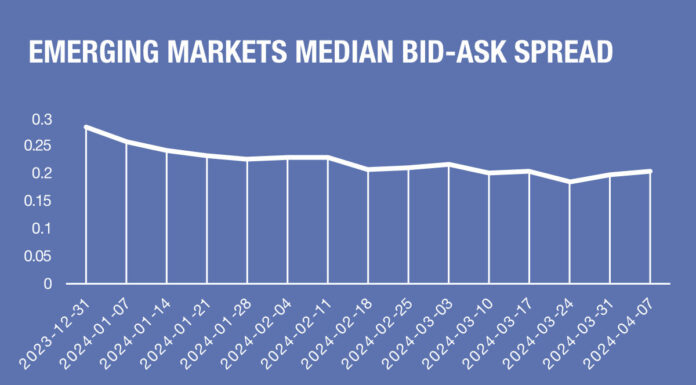
The European Commission (EC) has fined Bank of America Merrill Lynch, Crédit Agricole, and Credit Suisse €28.5 million for breaching EU antitrust rules, as part of a four-bank cartel in the secondary trading market within the European Economic Area of Supra-sovereign, Sovereign and Agency (SSA) bonds denominated in US Dollars
Deutsche Bank was the fourth member, but it was not fined as it revealed the existence of the cartel to the Commission.
The cartel was revealed to the EC via an immunity application in August 2015. Following the initial investigation and analysis of the evidence, a statement of objections against the four parties was issued in December 2018. The parties were then given the opportunity to make their observations both in writing and at an oral hearing before the Commission issued the decision.
Executive vice-president of the Commission, Margrethe Vestager, in charge of competition policy said: “Today we have issued a decision against Bank of America Merrill Lynch, Crédit Agricole, Credit Suisse and Deutsche Bank, whose traders colluded on trading strategies, exchanged sensitive pricing information and coordinated on prices. The behaviour of the investment banks restricted competition in a market in which investment and pension funds regularly buy and sell bonds on behalf of their investors and pensioners. The cartel harmed the financial markets and today’s decision sends a clear message that the Commission will not tolerate any type of collusive behaviour.”
The four investment banks participated in a cartel through a core group of traders working in their US dollar SSA bonds divisions, who were in regular contact with each other.
The traders, who were in direct competition, typically logged into multilateral chatrooms or bilateral chatrooms on Bloomberg terminals. They knew each other on a personal basis, thus creating a closed circle of trust. They provided each other with recurring updates on their trading activities, exchanged commercially sensitive information, coordinated on prices shown to their customers, or to the market in general and aligned their trading activities on the secondary market for these bonds.
The traders involved traded with both clients, often via their bank’s sales desks, and other sell-side traders. Quotes were made directly to clients and on brokers’ screens across several electronic platforms.
The conduct took place during a five-year period and affected the trading of US-denominated SSA bonds on the secondary market in the entire EEA.
The Commission’s investigation revealed that, further to coordination on prices quoted to specific clients or the market in general, the traders at times agreed:
- to refrain from bidding or offering, or to remove or ‘kill’ a bid or offer from the market, when they might come into competition with one another;
- to split trades between each other and combine or reduce their respective positions to meet a specific customer’s demand, without the customer being aware that it was dealing with more than one trader which meant that in practice the customer had limited choice;
The behaviour of the four banks violates EU rules that prohibit anticompetitive business practices such as collusion on prices – Article 101 of the Treaty on the Functioning of the European Union and Article 53 of the EEA Agreement. The Commission undertook its own investigation.
The number of traders involved was not revealed, as the decision was addressed at companies only.
Any person or company affected by anti-competitive behaviour as described in this case may bring the matter before the courts of the Member States and seek damages. The case law of the Court and Council Regulation 1/2003 both confirm that in cases before national courts, a Commission decision constitutes binding proof that the behaviour took place and was illegal. Even though the Commission has fined the cartel participants concerned, damages may be awarded without being reduced on account of the Commission fine.
©MarketsMedia 2021
TOP OF PAGE























